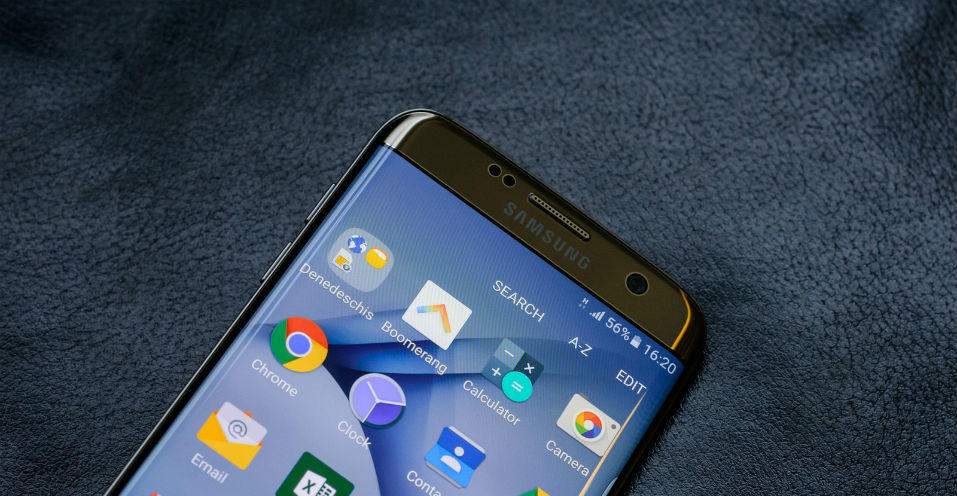In the UK, individuals must typically be 18 years old to obtain a mobile phone contract, as it constitutes a credit agreement requiring legal eligibility. Even if a person under 18 manages to pass the credit check and signs a contract, it remains unenforceable, potentially leading to legal consequences for providing false details.
While technically possible for a 17-year-old to secure a phone contract, it goes against company policies and may be considered illegal. It is advisable to wait until legally eligible to avoid legal complications and ensure responsible contractual agreements.
How Does Legal Age Affect Credit in Mobile Phone Contracts?

Legal age matters in phone contracts as it ensures people can handle the financial responsibilities. It’s like a safety measure, making sure both users and providers are protected from possible financial issues.
Connecting the Legal Age Requirement with Credit Arrangements in Phone Contracts
In the context of mobile phone contracts, the legal age requirement is closely tied to credit arrangements. Mobile contracts often involve the extension of credit by service providers, allowing consumers to access devices and services without upfront payment.
The legal age requirement serves as a safeguard, ensuring that individuals entering into such credit agreements possess the necessary legal capacity to understand the financial implications and obligations associated with the contract.
The Financial and Legal Implications for Both Consumers and Service Providers
For Consumers
Entering into a phone contract signifies a financial commitment. Consumers, including those under 18, need to comprehend the financial responsibilities involved, such as monthly payments and potential additional charges. Failing to meet these financial obligations could impact their credit history, influencing future financial transactions.
For Service Providers
Service providers extend credit based on the expectation of timely payments. The legal age requirement acts as a protective measure for service providers, ensuring that consumers are legally bound by the terms of the contract. It also minimizes the risk of entering into credit agreements with individuals who may not fully understand or be capable of meeting the financial commitments.
What Challenges Do 17-Year-Olds Face When Securing Phone Contracts?
One significant challenge for 17-year-olds seeking phone contracts is the standard credit check process. Most mobile providers conduct credit assessments to evaluate an individual’s financial reliability. As 17-year-olds may not have an established credit history, they might face difficulties passing these checks, limiting their access to certain contract options.
Another challenge revolves around the level of financial responsibility required for phone contracts. Many 17-year-olds may be new to managing financial commitments, and a phone contract represents a significant ongoing expense. Navigating monthly payments and understanding the total cost of the contract can be challenging for individuals in this age group.
While 17-year-olds may be considered mature enough to handle many responsibilities, they might still face legal limitations. The question of legal capacity arises, as certain contractual agreements, including phone contracts, require individuals to be 18 or older. This presents a hurdle for 17-year-olds seeking contracts that involve a legally binding commitment.
How Parents Can Be Involved in the Process and Guide Their Children Responsibly?

Educating on Financial Responsibility
Parents play a crucial role in guiding their children through the process of acquiring a phone contract. This involves educating them on financial responsibility, explaining the costs associated with the contract, and discussing the importance of timely payments.
Assisting with Contract Selection
Parents can be actively involved in assisting their children in selecting the most suitable contract. This may include considering factors like data usage, monthly costs, and contract duration. By providing guidance, parents can help their children make choices aligned with their needs and financial capacity.
Monitoring Usage and Payments
Ongoing involvement includes monitoring phone usage and ensuring timely payments. Parents can set up clear expectations regarding responsible phone use, avoidances of additional charges, and the consequences of not meeting financial obligations.
Being a Point of Contact with Providers
In cases where parental consent is required, parents can serve as the primary point of contact with service providers. This ensures that any queries, clarifications, or issues related to the contract can be addressed by a responsible adult.
What Are The Alternatives for Under-18s

Pay-As-You-Go Plans
For individuals under 18, pay-as-you-go plans represent a flexible alternative. These plans allow users to pay for the services they use without being tied to a long-term contract. It’s a practical option, especially when credit checks or legal age restrictions pose challenges for traditional contracts.
SIM-Only Deals
SIM-only deals provide another viable alternative. These plans offer a SIM card with a data, text, and call allowance but typically don’t include a device. This option allows under-18s to access mobile services without committing to a lengthy contract or undergoing stringent credit checks.
Practical Alternatives for Those Not Meeting the Legal Age Requirement
Prepaid Plans: Prepaid plans offer simplicity and control over expenses. Users can purchase a specific amount of credit, and once it’s used up, they can top up as needed. This alternative is suitable for those under 18 as it doesn’t involve credit checks or lengthy contracts.
Family Plans with Parental Control: Some service providers offer family plans that allow parents to have control over usage and spending. These plans often include features like spending limits, content restrictions, and the ability to monitor usage. They provide a secure and controlled environment for individuals under 18.
Educational Programs on Responsible Mobile Usage: An alternative approach involves educational programs designed to teach responsible mobile usage. These initiatives can be targeted at schools or community organizations, providing valuable information on managing mobile services, understanding costs, and making informed decisions.
FAQ
How to Get a Phone Contract at 17?
To secure a phone contract at 17, one may explore options like involving a parent for consent, considering prepaid or SIM-only plans, or opting for providers with more flexible requirements.
Can a 16-Year-Old Take Out a Contract?
In most cases, it’s challenging for a 16-year-old to take out a contract due to legal age requirements. Mobile contracts often require individuals to be 18 or older.
What Is the Age Limit for a Contract?
The age limit for entering into a contract is typically 18 years old. Contracts involve legal obligations, and individuals must have the legal capacity to understand and fulfill those obligations.
Can a 17-Year-Old Make a Contract, but It Is Voidable?
While a 17-year-old may technically make a contract, it may be voidable. Legal complexities can arise, and the contract’s enforceability may be influenced by factors like parental consent.
Who Is Eligible for a Contract?
Anyone who meets the legal age requirement, usually 18, is eligible for a contract. Eligibility involves having the legal capacity to understand and fulfill the terms of the contract.
Who Is Not Allowed to Contract?
Individuals below the legal age limit, typically 18, are not allowed to contract. This restriction ensures that contractual agreements involve parties with the necessary legal capacity.
Who Is Not Eligible for a Contract?
Those who do not meet the legal age requirement are not eligible for a contract. Legal age serves as a critical criterion to ensure individuals can fully comprehend and fulfill contractual obligations.
Who Cannot Enter Into a Contract?
Anyone lacking the legal capacity, often determined by age, cannot enter into a contract. This includes individuals below the specified age limit, ensuring responsible and legally binding agreements.
Final words
While it might be technically possible for a 17-year-old to get a phone contract, it comes with challenges. The legal age requirement, credit checks, and financial responsibility factors can make it difficult.
However, there are alternatives like pay-as-you-go and SIM-only deals. Parental consent can also play a crucial role in making the process smoother. It’s important for both teens and parents to understand the commitments involved and explore suitable options.
Ultimately, waiting until legally eligible or considering alternative plans can lead to a more informed and responsible approach to getting a phone contract.

